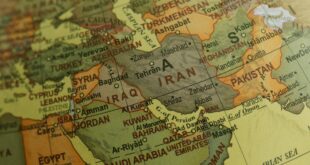“I wish we hadn’t had intercourse at the age of 6. Then we could be really happy. … My mom used to brush my hair and send me to you,” the woman tells her supposed “husband.” The man casually admits “it was something wrong.”
This secretly recorded conversation by the woman who claims she was systematically raped by a man whom she was forcibly married to by her father when she was 6 made its way to the evidence list in a criminal proceeding against the woman’s supposed “husband” and parents. The man was 29 years old when the religious marriage took place, according to the prosecutor’s indictment.
The story has shaken the country from its core since it was broken by prominent investigative journalist Timur Soykan in BirGun Daily. The accused rapist and father’s senior positions in one of Turkey’s most influential religious orders, Ismailaga, has further fueled the outrage among the secular segments of society who have long argued that religious sects operate under extensive impunity thanks to their close ties with the government. The fruitless criminal investigation, launched over suspicions of a physician who treated the woman when she was 14 years old, indicates that they may have a point.
The affair is the latest in a string of scandals that Turkey’s religious sects have been embroiled in over the past years, sparking wide outrage. Yet unlike previous incidents, the latest scandal drove a more powerful reaction from Turkish government officials. Don’t miss Andrew Wilks’ report for more details on the story. And for background on the increasing influence of religious sects under Erdogan’s ruling party, check Amberin Zaman’s previous articles here and here.
On the international front, sights are still set on whether Turkey will act on its threat and launch a new ground offensive against the Syrian Kurdish groups that Ankara considers “terrorists.”
Erdogan further ramped up his rhetoric against Turkey’s Western allies, notably the United States, today. “To be frank, we will never forget that we have been left alone in our fight against terrorism that threatens our unity and solidarity despite all the sacrifices we have made,” Erdogan said in a televised speech. “No one can call us out for our fight against these terrorists.”
“We still haven’t been able to resolve an F-16 issue with you,” he went on. As Nazlan Ertan reported this week, the omission of a measure that would have restricted US sales of F-16 fighter jets to Turkey from the final text of the US defense budget has led to “cautious” optimism on the Turkish side.
And Ankara may be right in not counting its chickens until they’ve hatched. As our Pentagon correspondent Jared Szuba reported in his weekly Security Briefing, Bob Menendez, the top lawmaker on the US Senate Foreign Relations Committee, vowed “not to approve F-16s for Turkey until Erdogan halts his abuses across the region.” The Biden Administration needs congressional approval for the sale.
Erdogan also lashed out at the United States for deployments of US-made military equipment on Greek islands. “We are together in NATO, but you deploy weapons and planes on Greek islands,” Erdogan said. Tensions between Ankara and Athens rose once again this week when Turkish Foreign Minister Mevlut Cavusoglu threatened Greece on Tuesday to “do whatever is necessary” unless Athens reverses the militarization of its islands off the Turkish coastline,” as Andrew Wilks reported.
Erdogan’s strikes at the United States Friday came a day after Washington imposed sanctions on a Turkish businessman who is said to be a close confidant of Erdogan, as Elizabeth Hagedorn reported.
Also on Thursday, the top US diplomat hosted his counterparts from Finland and Sweden. The Nordic countries’ NATO memberships have been held up by Turkey, which argues that Stockholm and Helsinki have yet to address Ankara’s security concerns. “Both countries have taken significant concrete actions to fulfill their commitments, including those related to the security concerns on the part of our ally Turkey,” Blinken said Thursday. “There can be no doubt on anyone’s part that they are ready today to be formal members of the alliance,” he added in a veiled rebuke to Ankara.
On the economic front, Turkey’s annual inflation fell to 84.4% in November from a 24-year high of 85.5% the previous month. Yet as Mustafa Sonmez pointed out, the fall largely stemmed from “the statistical effect of the high base the same month last year.” Particularly food prices, the main driver of the breakneck inflation, continue to rise, increasing by 5.75% in November from the previous month and 102.5% year-on-year, Sonmez reported.
Erdogan, in turn, insists that supermarket chains — which control only 15% of the fruit and vegetable markets, as most Turks shop in open markets — are the main culprit of the food inflation, as Ertan reported here.
As an Al-Monitor/Premise poll shows, breakneck inflation and skyrocketing prices stand out as the major issue complicating Erdogan’s reelection bid in the upcoming presidential and parliamentary election due in June at the latest with 67% of respondents believing the economy is the most important challenge facing Turkey.
 Eurasia Press & News
Eurasia Press & News



